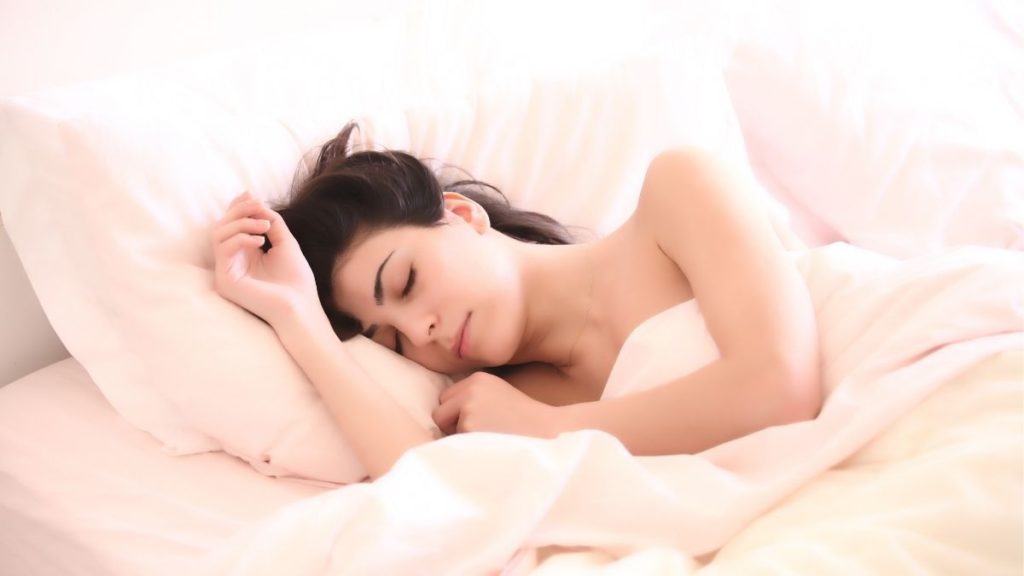
Though often overlooked, a healthy sleep routine can make or break your wellness routine.
Sleep researchers have linked a healthy sleep routine with improved productivity, quality of life, eating habits, wellness, and safety [1]. Sleep affects a person’s ability to fight off infection, perform well in school and work, and metabolize certain foods, and yet one in four U.S. adults report insufficient sleep or rest at least 15 out of every 30 days, according to a study by HealthyPeople.gov.
To better understand your particular sleep cycle and sleep health, a growing body of research has categorized individuals into four main types of natural sleep rhythms. Known as “chronotypes,” these categories not only help a person determine their ideal time to do almost anything, but also reveal key insights about their personality traits and tendencies.
Better yet?
There’s a fun and easy quiz, created by sleep doctor Dr. Michael Breus, to help you find your unique chronotype and start changing your life for the better. Find your personal chronotype here, and read on to learn what your chronotype says about you.
What Are Chronotypes?
A chronotype is a person’s natural inclination toward a specific sleep-wake pattern (or circadian rhythm), determined by when they feel most awake / asleep.
According to chronotype research, your preference to wake up in the early morning or sleep until noon isn’t just a personality preference, it’s also genetically-driven.
The PER3 circadian clock gene has been linked with a predisposition toward particular sleep patterns — with individuals with a longer allele on the gene skewing toward morning risers and individuals with a shorter allele skewing toward evening hours. These genetic dispositions also link to certain personality traits. Early risers, for instance, tend to perform better at school while their evening-oriented counterparts tend to have a higher aptitude for creative thinking [2].
While chronotypes function more as a spectrum rather than a monolith (with some individuals skewing more toward the middle than others), learning the characteristics and best times for your unique chronotype can help you create a schedule and life suited for your sleep health needs and overall well-being.
The Four Types
Bears
Ideal Sleep Schedule: 11:10 p.m. – 7 a.m.
Making up 55 percent of the population, the Bear chronotype is the most common of all the types, with their energy following the pattern of the sun (waking up with the sunrise and winding down by sunset). Described as extroverted, happy-go-lucky, and open-minded, bears tend to do their best work from 10 a.m. – 2 p.m. Although bears are apt to the post-lunch dip from 2 p.m. to 4 p.m., they are still typically the best-suited for traditional office roles.
Dolphins
Ideal Sleep Schedule: 11:50 p.m. – 6:30 a.m.
As 10 percent of the population, dolphins are the rarest of the four chronotypes. Highly intelligent, scattered-brained, and creative, dolphins focus best from 3 p.m. – 9 p.m. Dolphins are subject to an inconsistent sleep schedule, and often suffer from anxious sleeping behavior and a consistent, underlying exhaustion.
Lions
Ideal Sleep Schedule: 10:10 p.m. – 6 a.m.
Consisting of 15 percent of the population, lions are the earliest risers of the four chronotypes. They are described as natural leaders, charismatic, and type-A individuals. Lions are typically the first one out the door for a run or the first at the office. Though they power through between 8 a.m. – 12 p.m., lions tend to burn out quickly and benefit from power naps throughout the day.
Wolves
Ideal Sleep Schedule: 12 a.m. – 7 a.m.
Making up the final 15 percent of the population, wolves are the night owls of the four chronotypes. Introspective, introverted, and highly creative, wolves tend to have the most focus between 5 p.m. and 12 a.m. and therefore stay up late working on their latest creative project.
The Benefits Of Chronotypes
In Dr. Breus’ book, The Power of When, Dr. Breus claims that he can help anyone find the best time to do anything — from drinking coffee and going on a run to asking your boss for a raise. He views “when” as the ultimate life hack, and the key to a “faster, smarter, better, and stronger you.”
Synchronizing your daily activities with your chronotype has been linked with improved sleep regulation, heightened physical performance, and better mental health [3]. With tiny tips and tricks — from the benefit of drinking caffeine 90 minutes after you wake up to exercising within the first thirty minutes of waking up for maximum fat-burning effects — chronotypes can help determine how to schedule your perfect day based on your unique circadian rhythm.
So, before you start your Pulitzer prize-winning novel or show up to that job interview, take a second to figure out the “when” rather than the “why” or “how.” Determine the “when,” and the “why” and “how” are sure to follow.
Sources
[1] https://www.healthypeople.gov/2020/topics-objectives/topic/sleep-health
[2] https://www.sleepfoundation.org/how-sleep-works/chronotypes
[3] https://casper.com/blog/chronotype/
[4] https://www.healthline.com/health/chronotype
[5] https://thepowerofwhen.com
[6] https://thepowerofwhenquiz.com
__
Photo: Pixabay




